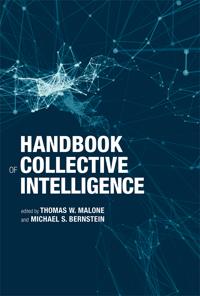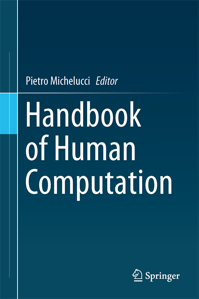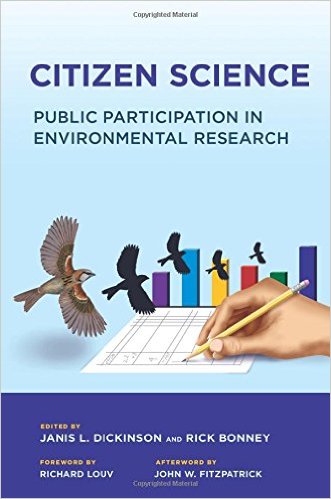This 2015 handbook, co-edited by HCI External Professor Michael S. Bernstein, collects essays on Collective Intelligence by leading researchers across related disciplines. Generally speaking, collective intelligence is groups of individuals acting collectively in ways that seem intelligent. In recent years, a new kind of collective intelligence has emerged: interconnected groups of people and computers, collectively doing intelligent things. Today these groups are engaged in tasks that range from writing software to predicting the results of presidential elections. This volume reports on the latest research in the study of collective intelligence, laying out a shared set of research challenges from a variety of disciplinary and methodological perspectives.
This 2013 volume, edited by our founder, addresses the emerging area of human computation. The chapters, written by leading international researchers including HC Institute faculty, explore existing and future opportunities to combine the respective strengths of both humans and machines in order to create powerful problem-solving capabilities. The book bridges scientific communities, capturing and integrating the unique perspective and achievements of each. It coalesces contributions from experts in diverse areas, including a foreword by celebrated cultural anthropologist Mary Catherine Bateson, to reveal that human computation encompasses disciplines from crisis management to digital curation to scientific and market research. The book combines industry perspectives with related disciplines in order to motivate, define, and anticipate the future of this exciting new frontier in science and cultural evolution.
The comprehensive, current, and interdisciplinary treatment transcends the technical scope of previous studies on the topic. Readers will discover valuable contributions covering Foundations; Application Domains; Techniques and Modalities; Infrastructure and Architecture; Algorithms; Participation; Analysis; Policy and Security and the Impact of Human Computation.
This book, edited by HC Institute External Professor Janis L. Dickinson, describes an approach to citizen science that enlists members of the public to make and record useful observations, such as counting birds in their backyards, watching for the first budding leaf in spring, or measuring local snowfall. The large numbers of volunteers who participate in projects such as Project FeederWatch or Project BudBurst collect valuable research data, which, when pooled together, create an enormous body of scientific data on a vast geographic scale. In return, such projects aim to increase participants’ connections to science, place, and nature, while supporting science literacy and environmental stewardship. In Citizen Science, experts from a variety of disciplines-including scientists and education specialists working at the Cornell Lab of Ornithology, where many large citizen science programs use birds as proxies for biodiversity-share their experiences of creating and implementing successful citizen science projects, primarily those that use massive data sets gathered by citizen scientists to better understand the impact of environmental change.



